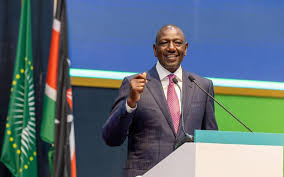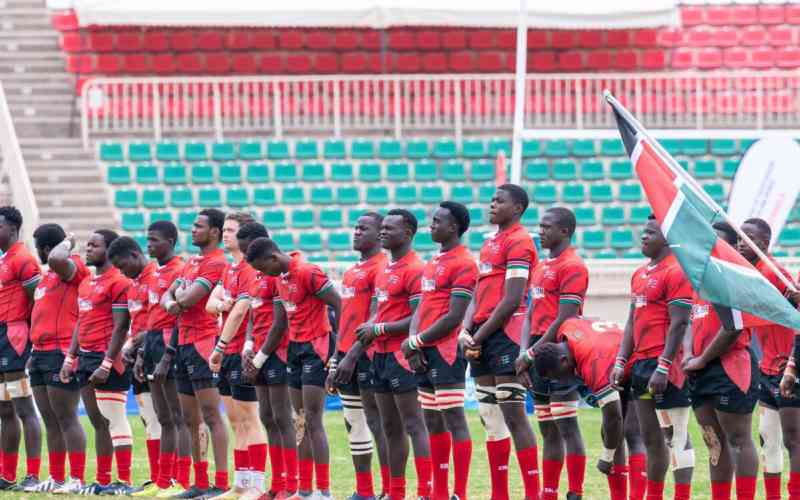A recent BBC story whose catchy headline linked Africa’s low Covid-19 cases and deaths to poverty led to a predictably vicious continent-wide backlash against this otherwise popular medium.
In the article, the BBC argued, that Africa’s debilitating poverty, rather than being a liability, could be its best defence; contending inter alia that because of its overcrowded living conditions, there was a greater degree of immunity from the virus.
While such narratives play to the West’s attitudes to this “dark continent”, Africa’s Covid status has puzzled many, including renowned scientists since the beginning of the outbreak.
Philanthropists like Melinda Gates, who are “experts” in African health systems were in April already sounding a warning that Africa would soon be collecting dead bodies in the streets.
Yet as of this week, Africa’s 1.3 million cases accounts for less than 5 per cent of the global 28 million cases. On deaths, Africa has so far reported 31,000, representing a meagre three per cent of the global death toll.
These numbers are pleasantly surprising when one considers that Africa’s population at 1.3 billion is 16 per cent of the global population, meaning we should by now be reporting at least 150,000 deaths. Indeed our death toll should be much higher considering the poor state of our health systems.
Initially, researchers were skeptical about Africa’s numbers, many explaining the low case numbers as resulting from lower testing.
While Africa definitely tests lower than most of the world, with most countries in the continent testing less than 3,000 people per million against most of Europe’s 200,000 tests per million, this argument was not sustainable since it could not explain the absence of a spike in mortality rates across the continent.
Even if one accounted for reduced mortality surveillance due to the challenges wrought by the virus, the numbers were still shockingly low.
Later theories explained the African puzzle in terms of Africa’s delinking from the world in that the continent accounted for less than three per cent of global travel. But that failed to explain the absence of community spread once the virus landed here, even in crowded informal settlements. The weather was a popular explanation, the argument being made that the virus did poorly in warmer weather. This theory was quickly dispensed with when places with similar climatic conditions showed higher infection rates than Africa.
Since it had been established that the virus was most severe on older people, other researchers pointed to Africa’s younger population where the population median is half that of Europe with very few Africans living to the grand old age of 80, unlike the West where a significant proportion of the population are octogenarians.
While this may explain the low death toll, it still does not explain the low case load since even young people get the virus only that they survive. What has made the matter more puzzling are recent anti-body tests in Africa which show a high prevalence of the virus. After testing more than 3,000 blood donors in Kenya, Kemri estimated that 1.6 million people had antibodies to the virus, an indication of past infection. That would put Kenya on a par with Spain in mid-May, when that country had 27,000 official Covid-19 deaths.
Kenya’s official toll stood at 100 when the study ended. Scientists have been unable to unravel this mystery and the closest to a consensus seems to be that the continent has had more exposure to other coronaviruses that cause little more than colds in humans, which may provide some defence against Covid-19.
Another possibility is that regular exposure to malaria or other infectious diseases could prime the immune system to fight new pathogens, including Covid-19. Whichever way one explains this mystery, there is no doubt that Africa may have dodged this bullet.
It should, however, serve as a useful warning sign. We should not assume that the next pandemic will give us a pass. The forewarning provides an opportunity for us to urgently investment in public health in all its dimensions as a priority. It would be absolutely irresponsible if we were met napping and ill-equipped when the next big one hits.
Stay informed. Subscribe to our newsletter
-The writer in an advocate of the High Court of Kenya
 The Standard Group Plc is a
multi-media organization with investments in media platforms spanning newspaper
print operations, television, radio broadcasting, digital and online services. The
Standard Group is recognized as a leading multi-media house in Kenya with a key
influence in matters of national and international interest.
The Standard Group Plc is a
multi-media organization with investments in media platforms spanning newspaper
print operations, television, radio broadcasting, digital and online services. The
Standard Group is recognized as a leading multi-media house in Kenya with a key
influence in matters of national and international interest.
 The Standard Group Plc is a
multi-media organization with investments in media platforms spanning newspaper
print operations, television, radio broadcasting, digital and online services. The
Standard Group is recognized as a leading multi-media house in Kenya with a key
influence in matters of national and international interest.
The Standard Group Plc is a
multi-media organization with investments in media platforms spanning newspaper
print operations, television, radio broadcasting, digital and online services. The
Standard Group is recognized as a leading multi-media house in Kenya with a key
influence in matters of national and international interest.








